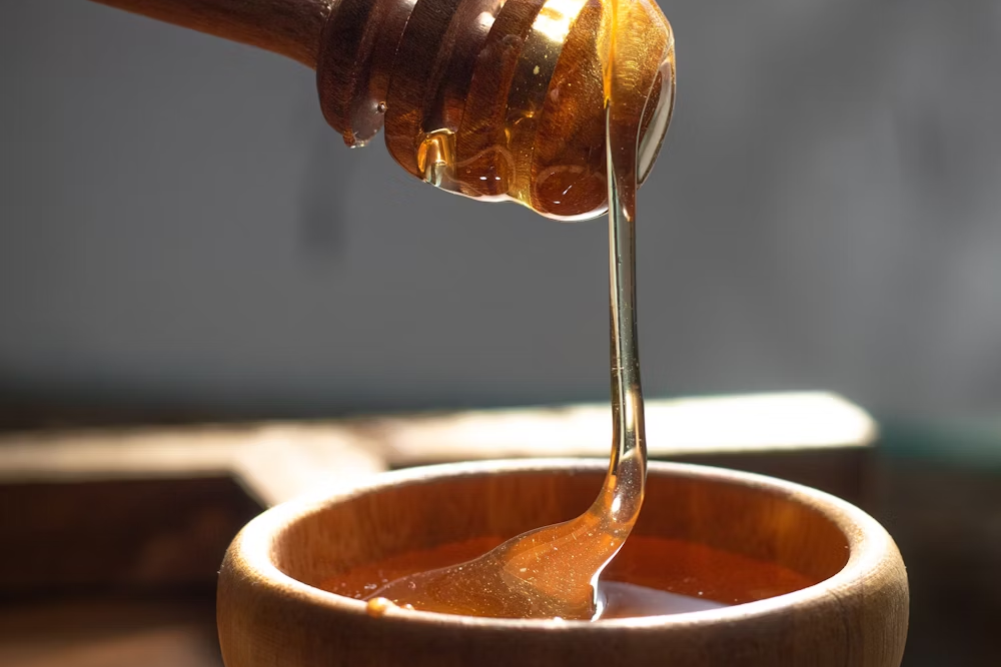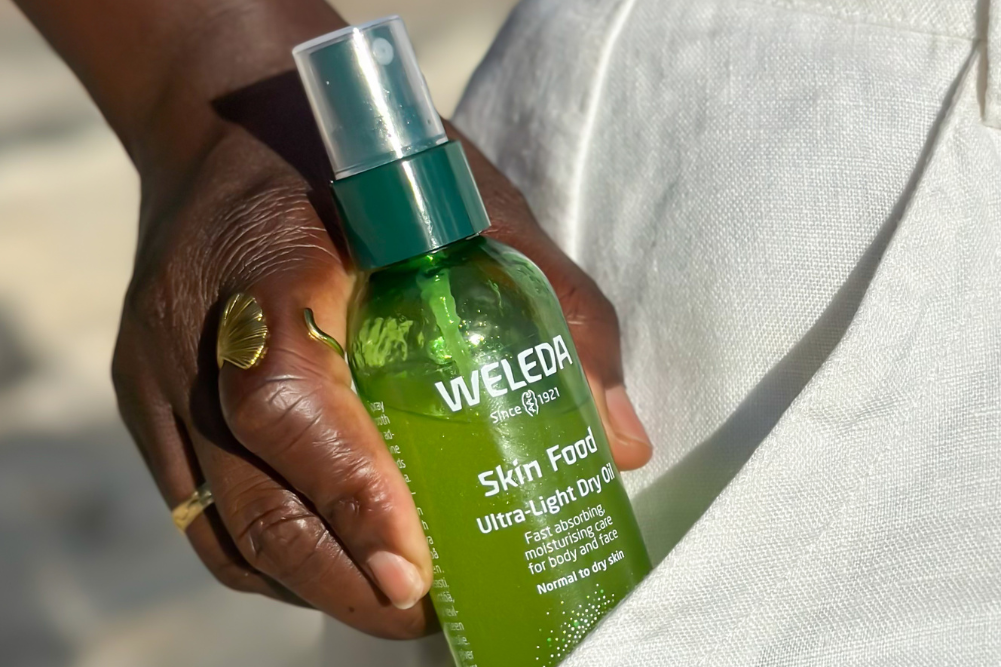The benefits of natural ingredients in skincare products
When it comes to putting our best faces forward and choosing what cosmetics to use on our skin, self education is the key. All the information is out there for us; it’s just a matter of sorting through the hype and finding the right fit for your skin.
More harm than good?
Being aware of the ingredients you apply to your skin is crucial. “Most people would agree that ‘we are what we eat’, so feeding your skin with natural ingredients is vital if you are concerned about maintaining your health,” says Amina Kitching, professional makeup artist and stylist. “It is certainly true that what we put on our skin is readily absorbed into the body and, unfortunately, the negative consequences are endless. Not nearly enough has been done to research the side-effects of toxic chemicals in cosmetics and I certainly see no sense in the use of such chemicals in skin and beauty care products.”
“Your skin is the largest organ in your body and is your body’s interface with the external world,” says Miranda Bond, CEO of Inika Cosmetics. “Recent studies have shown that women who use makeup on a daily basis are absorbing more than two kilos of chemicals a year into their bodies. Some of the chemicals used in day-to-day cosmetic products have been shown to produce negative effects, including skin and eye irritations, dermatitis, hormonal disruptions, respiratory stress, dizziness, headaches and weakening of the immune system. Worse still, many have been shown to be carcinogenic or have been found in tumor samples,” she warns.
Bond explains that, when a product is applied to the skin, the chemicals that can be absorbed penetrate the dermis and enter the bloodstream where they can be carried to organs and other areas of the body, while others accumulate in fatty tissue. “None of the chemicals in cosmetics and personal care products is fully tested and, for the most part, there is only very basic information available on their health effects,” adds Bond. “This means the magnitude of their potential adverse effects is unknown.
The study of toxic substances is still in its infancy, with much research and testing being inconclusive in regards to long-term effects on health. It is for this very reason that many consumers are choosing not to take the risk and opting for products with natural ingredients such as vitamins and antioxidants that are proven to be beneficial for our complexions.
Kitching’s advice to anyone concerned about potentially harmful synthetic ingredients is to avoid them where possible and avoid them completely when an allergy is present. “Today, there are so many natural alternatives readily available that it is becoming increasingly unnecessary to use products that contain potentially harmful synthetic ingredients.”
Mineral makeup
Mineral makeup consists of natural elements extracted from the earth, should not contain large amounts of synthetics or “fillers” and is usually in the form of gentle and lightweight face powder, eyeshadow or blush.
“Natural and mineral cosmetics have come a long way in recent years. Because mineral makeup is so gentle, it is also the only type of makeup recommended for use after cosmetic surgery, chemical peels or laser re-surfacing. This is because mineral makeup traditionally contains fewer chemicals than regular makeup and also because of certain ingredients, like zinc oxide, which have a very calming and soothing effect on the skin,” says Bond. “It’s always good to bear in mind that not all mineral brands are created equal, so it is important to look at what ingredients are used.”
“Mineral makeup is by far the healthier choice and dermatologists highly recommend it for its breathability as it does not block the pores,” adds Kitching.
Mineral cosmetics are also recommended for people suffering from skin conditions or sensitivities. “If you have sensitive skin, you should avoid unnecessary additives such as fragrance, preservatives and colouring, as individuals with sensitive skin may more easily develop allergies to these additives,” says Dr Lim, Cosmetic Dermatologist.
“If you have sensitive skin and/or acne-prone skin, a high-quality mineral makeup may be gentler on the skin by being less occlusive and less likely to block the pores. It also feels light on the skin and allows the skin to breathe and stays on longer without repeat application. If you have acne-prone skin, oily moisturisers and makeup can block pores and worsen your acne. Mineral makeup is an alternative for acne and sensitive skin sufferers, who should avoid minerals with bismuth oxychloride and mica as they can irritate the acne-prone skin,” he says.
The mica found in mineral products also “reflects light away from those fine lines and wrinkles. Due to the titanium and zinc oxide content, they also offer in-built sun protection (the level of sun protection is based on the percentage and type of minerals used so varies between products),” says Bond. Mica is generally a very safe mineral ingredient but is best not to be used on sensitive and highly reactive skin types.
Is it really natural?
Many products in today’s cosmetic market often claim to be something they are not, so it’s always important to read labels carefully. One common trap is products claiming to be “organic” or “100 per cent natural” when they only have a small percentage of natural ingredients included or have hidden synthetic ingredients present.
“For a truly pure mineral makeup, it should not contain any talc or parabens (known carcinogens), bismuth oxychloride (an irritant), fragrance, genetically modified ingredients or any preservatives (as loose minerals are inert they cannot support bacteria),” explains Bond.
If there’s something on the ingredient list of a product you need to know more about, Bond recommends doing a bit of investigating. “If you are unsure about an ingredient, look it up on www.cosmeticsdatabase.com. This will help give you an understanding of exactly what it is and what it can do to your skin and body.”
Natural beauty in mass production
The question of the mass production of natural makeup has caused quite a bit of controversy within the beauty industry, with one side saying it is unrealistic for a mass-produced product to be entirely natural. However, the other side maintains, “There are so many products out there now that are 100 per cent natural — even the preservatives are natural. There is no need to add synthetics when you have the pick of hundreds, if not thousands, of beautiful natural ingredients that have added skin benefits as well as looking and feeling good,” says Bond.
Bond believes natural ingredients can work even better than their heavily processed and mass-produced counterparts. “There have been great strides of improvement in terms of colour, application, performance and use of natural/organic/mineral cosmetics over the years,” she says. “Organics over time have been transformed from being fairly bland to now being more colourful, functional, high-performing and appealing to women who love makeup — not just women looking for a natural product.
Conversely, Dr Lim says it would be unrealistic to expect Mother Nature to produce ready solutions for all our ills and that sometimes products need to be tweaked to offer what we expect from the best of science and technological progresses.
The definition of what makes a “natural” product can be somewhat confusing to consumers, with product labels often misleading in terms of what we think to be natural versus what cosmetic companies deem to be considered natural. Kitching maintains that it comes down to individual product integrity.
“Many natural products, especially loose powder products, do not require additional preservatives as they often contain high levels of vitamins and extracts that work to naturally stabilise and preserve the product,” says Kitching. “Only when water is added, say for a liquid-based product such as mascara or a face cream, does the preservative issue become more complicated, requiring the use of additional preservatives to maintain product stability.
“I think the key is product integrity. Preservatives are essential to ensure product stability and it would be far more harmful to use a product that was unstable than to use a product containing a naturally derived preservative system that usually forms less than 1 per cent of the product. The classic definition of something deemed “natural” is if any ingredient is sourced as currently existing in or formed by nature without the use of synthetic chemicals and manufactured in such a way as to preserve the integrity of the ingredient,” Kitching clarifies, which is why doing a little research into your makeup product can go a long way.
Beauty and brains
Always aim to be a smart consumer. It is ultimately up to the individual to read between the lines. “Every consumer has a choice as to whether they are happy to continue using chemical ingredients that may potentially be harmful or to look for more natural and, hopefully, safer alternatives. Many people simply aren’t aware of the potential risk of long-term health effects or they may be aware and still choose to continue to use the same products. We recommend that rather than just assuming the chemicals in the products you are putting on your skin are safe, start questioning and doing your own research so you can make the right choices about what you put on and into your body,” advises Bond.
“Always cleanse and moisturise with good-quality certified organic products. There are some great brands out there doing amazing things with skincare — just make sure they are certified by a body such as the OFC or BFA and always, always check the ingredients list,” Bond says.
“There are regulating bodies in Australia to protect consumers. Ingredients in skincare cosmetic products are required to conform to the Uniform Scheduling of Drugs and Poisons to ensure they are safe for use in cosmetic products,” says Dr Lim, “Ingredients must conform to the Industrial Chemicals Act requiring that all ingredients be subject to the National Industrial Chemicals Notification and Assessment Scheme and are included in the Australian Inventory of Chemical Substances safety screens and checks. As many of these products are imported, they must also have conformed to the Food and Drug Administration requirements and the European Economic Community standards, ensuring that Australian cosmetics have one of the highest safety standards in the world,” he says.
Beneficial ingredients to look out for
Niacinamide (vitamin B3) improves skin immunity in order to combat skin cancers and has an anti-inflammatory agent that is useful for sensitive skin, calming flushing and redness. It’s also useful in evening out skin tone and colour. “Niacimamide penetrates the skin readily and has been demonstrated to increase epidermal lipids, enhance keratinocyte differentiation, attenuate UVR damage, increase fibroblast activity, boost skin immunity and inhibit melanin production,” says Dr Lim. “In short, niacinamide can improve skin texture, decrease pigmentation and redness and improve skin health, making it one of the most popular cosmeceutical agents today, rated the beauty ingredient of the decade.”
Retinol is natural vitamin A (converts to retinoic acid in the skin). Retinoic acid is the first breakthrough skin tonic that has been widely studied. “Retinol is produced commercially as an anti-acne cream as it effectively unblocks pores and reverses blackheads and whiteheads,” says Dr Lim. “It also mildly reverses sun damage and fine lines and helps reduce irregular pigmentation as well.”
Beneficial oils such as tamanu, pomegranate, macadamia and rosehip oils have wonderful benefits for the skin. Certified organic tamanu oil is often added as a powerful anti-microbial agent and has been known to aid with scarring, pigmentation and sunburn. Certified organic pomegranate oil helps to nurture and repair skin and is also a powerful antioxidant. “Certified organic macadamia nut oil penetrates the skin quickly, giving dull skin an instant boost. Certified organic evening primrose oil soothes, hydrates and moisturises the skin and has been found to help accelerate the formation of new skin cells,” says Bond. Certified organic rosehip oil is a natural source of vitamin C and helps to protect the body against harmful free radicals and helps repair the skin with its high dose of essential fatty acids,” adds Bond.
Zinc oxide provides natural sun protection and is known for its calming properties on the skin (zinc oxide is the primary ingredient found in diaper rash ointments).
Fruit acids act as natural exfoliants by helping to shed the outer layer of dull-looking “dead” skin. “Skin feels smoother and more radiant with regular use,” says Dr Lim.
Antioxidants such as vitamin C, alpha-lipoic acid, coenzyme Q10, kinetin, idebenone and flavonoids all act as free-radical scavengers that combat cellular degeneration and ageing for more even skin tone and radiance.
Mica is used as a pigment in most mineral makeups as it adds a luminescent shine to the product’s finish. It provides a long-lasting, natural finish to the skin and is known to be hypoallergenic, though it may not be appropriate to use on acne-prone skin.
Certified organic aloe vera is known for its healing properties and helps with the appearance sun-damaged skin.
Certified organic calendula helps to improve circulation and protect the skin. It also helps calm red, irritated skin and is an absolute lifesaver for those suffering from psoriasis,” says Bond.
Certified organic shea butter is known for its intense moisturising and nourishing properties and helps smooth the appearance of dry, dehydrated skin.
Certified organic green tea extract is a renowned antioxidant and anti-inflammatory, helping soothe the appearance of agitated skin.
It’s always a good idea to minimise the amount of any potentially harmful synthetic ingredients in our lives as we know that skin does readily absorb what is applied to it, even if we don’t know how much is absorbed. So next time you are browsing the Beauty section, read beyond what products are telling you and investigate by reading between the lines a little. You might be surprised at what’s lurking in those extensive ingredients lists.
Ingredients to avoid
Parabens: Preservatives commonly used in makeup products. Talc: A cheap bulking agent that is dry, chalky and related to asbestos. It’s used in many mainstream mineral brands as a filler to lower manufacturing costs.
Artificial fragrances: Can cause skin allergies and skin reaction to light (photo allergy). Commonly used in pressed powders and causes irritation and clogged pores.
Lead: A known neurotoxin. Exposure to lead may result in brain damage, cancer, miscarriage and infertility. Often found in lipsticks — don’t poison your pucker!
Phthalates: Manmade substances that mimic the female sex hormone oestrogen. Past studies have linked them to birth defects, kidney problems and infertility. Trace elements are being absorbed through the skin and, because the body doesn’t know what to do with them, they accumulate over time. Commonly found in plastic but also present in perfumes and lip glosses.
Dimethicone: A manmade toxic synthetic pigment and silicone-based polymer. Dimethicone sits on the surface of the skin and doesn’t allow it to breathe, causing irritation.
Manganese: A byproduct of lead and copper refining and almost chemically identical to toxic arsenic, manganese is used as a filler because it gives a pearlescent shimmer. Can cause itching and clogged pores.
Bismuth oxychloride: Used in many mainstream mineral brands as a filler to lower manufacturing costs.
Chemical dyes: Link directly to skin allergies. Studies have found a breast cancer link to red 04 dye.
Mineral oil: Petroleum-derived oil that suffocates the skin and clogs pores.
Carmine (cochineal): Made by boiling dried beetle wings to extract the red pigment (cannot be classified as vegan when used).







